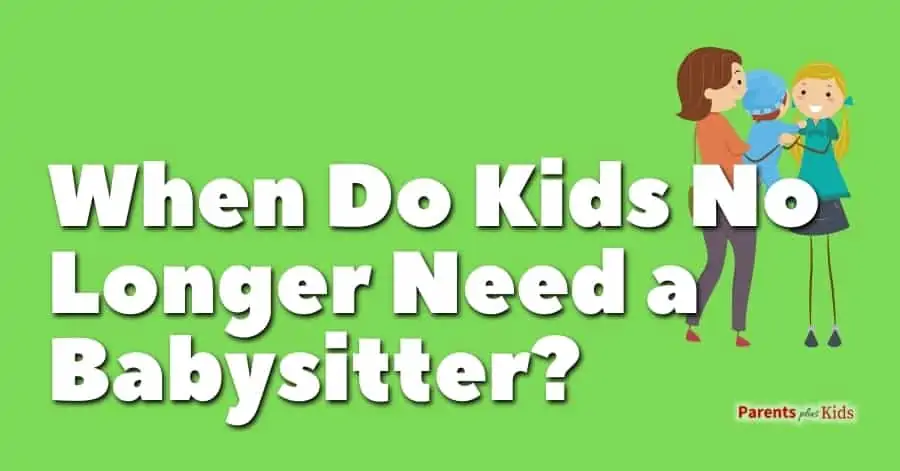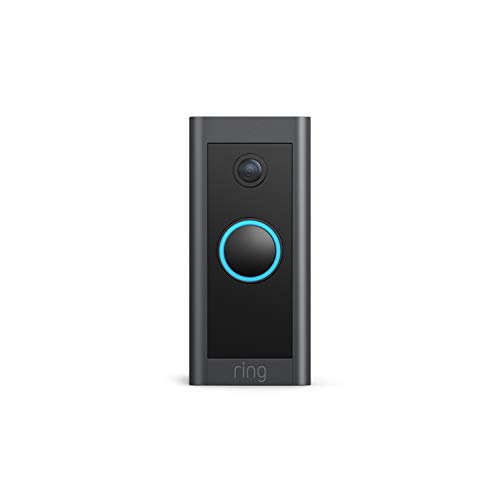At What Age Do Kids No Longer Need a Babysitter?

This post may contain affiliate links. If you buy through the link, I may earn a commission. Learn More.
Part of me will always think my kids need a babysitter. It’s hard to look at them without seeing the babies they once were.
It’s also difficult to know if I’m putting them in harm’s way by leaving them home alone.
With all that said, when do parents know their kids are self-sufficient and don’t need a babysitter?
Some states have specific ages at which children are legally allowed to be left on their own. However, parents should not look only at age restrictions but at their own child’s maturity level. One 12-year-old might be perfectly safe on their own, while another may need adult supervision.
*FYI, some of the links in this article about what age kids no longer need a babysitter may be affiliate links. If you click and make a purchase, we may get a commission (at no extra cost to you). For more info, please see our disclaimer.
Is There a Specific Age Kids Stop Needing a Babysitter?
There is no tried-and-true age that tells parents when their children are ready to be left alone. There are laws in place in some states that put restrictions on what you as a parent can do.
However, even abiding by those laws doesn’t necessarily mean you’re in the clear. Ultimately it will come down to you knowing your kids and honestly maybe at some point taking a “leap of faith.”
Below I’m going to give you some things to watch out for and some general guidelines that will make the decision to skip hiring a babysitter a lot easier.
State Latchkey Laws
Start with your state law. Referred to as the Latchkey Law, a handful of states in the country have a specific age under which a child cannot be left alone.
Some Latchkey Laws in the Books
Colorado and Delaware are the states that do not allow children under the age of 12 to be left alone without childcare. Michigan lets children ages 11-and-over stay home alone.
A minimum age of 10 is acceptable for children in New Mexico, Oregon, Tennessee, and Washington to be home by themselves without a babysitter.
In North Dakota, children can be nine to stay home alone. Georgia, Maryland, and North Carolina put the cut-off even younger, at age eight.
Illinois has the oldest Latchkey Law, with a rule that states children can’t be left alone if they’re under 14. Kansas has the youngest age among states with Latchkey Laws. Kansas states that children ages six and over can be left alone without repercussions
Should parents be led to believe that children in Kansas are exceptionally mature while those in Illinois need to be exiting middle school before they can be trusted? And what of the majority of the states that don’t have laws on the books? Do these children need no supervision at all?
Naturally, that’s not the case. Without breaking any laws regarding lower age limits, parents should look at these laws as guidelines that help them with their decision-making processes.
Related: 10 Warning Signs of a Really Bad Babysitter
Common Sense Guidelines
The average age to leave a child alone without a babysitter, for those states with laws on the books, is 10.5.
Most experts agree that children are responsible enough to stay home alone sometime between ages 10 and 11.
Of course, this age isn’t set in stone. Parents should decide for themselves if a child is ready. The question is: How?
Ask yourself the following questions:
- Does your child do their household chores with little to no fuss?
- Have they been placed in charge of feeding, bathing, or otherwise caring for a pet?
- Do you regularly have to intervene when your child is engaging in dangerous behavior?
- Does your child regularly ask to sleep in your bed at night?
- Does your child know your phone number and how to call in case of an emergency?
If you can answer these questions with honesty, you should be able to determine your child’s maturity level somewhat easily. Honesty, especially with yourself, is the key.
I like to believe that my daughter is extremely mature for her age, but when I caught her climbing to reach a high shelf by balancing a chair on top of an exercise ball, I had to rethink my assumptions.
She wasn’t nearly as mature as I thought and needed more time before she could be unsupervised.
Pro-Tip
I feel like a lot of parents regularly fall into two camps. Those who are too critical of their kids, and those who are not critical enough of their kids.
The same breakdown will probably happen when parents are making a decision like this. I don’t know which one you fall into, and you might not know either, but you really should find out to make an accurate assessment of your kid’s maturity level.
You need to understand that saying/admitting your kid is not mature enough yet (even if they have a friend or relative of the same age who is) is not saying your kid is bad or that you’re a bad parent.
Some kids (regardless of gender) mature faster or slower than others.
Testing for Maturity
The easiest way to test your children for maturity is also the riskiest. If you think your child is ready, leave them at home for an hour or less to see how they handle the responsibility and pressure.
In most cases, children will show they’re more than able to stay home alone.
This test can also backfire. The first time I was left home alone was when I was 10. I used that opportunity to test an experiment that my parents had never let me try.
We all learned a valuable lesson that day. My parents learned I wasn’t ready to be home alone, and I learned how to put out a fire with limited injury.
Needless to say, it was a while before I was trusted alone again.
A safer way to test maturity is to leave your kid alone while you stay nearby. Have them stay in the house alone while you do yard work or spend an hour with a neighbor.
My husband and I have the luxury of living near a walking trail. We asked our son to stay home with our daughter while we went for a walk.
The first time, we were gone for about 30 minutes. The next time it was an hour. We were convinced he was ready when we had left them alone a few times without any incidents.
Related: What Age Can a Child Babysit Their Sibling?
Leaving Your Kid Alone For the First Time
You’re finally ready to leave your child alone without a babysitter. Congratulations! There are a few things you need to do to make sure both you and your child are comfortable with this new experience.
1. Have a Game Plan
Tell your child where you will be, how long you will be gone, and when you will return. Stick to your schedule and return home on time.
2. Provide an Emergency List
Have a written or printed list of emergency numbers easily available to your child. This should include your cell phone, the numbers of any place(s) you will be, police, fire department, and trusted friends and neighbors.
3. Go Over House Rules
Make sure your child knows not to answer the door for anyone who may stop by. Likewise, tell them not to let anyone know they are home alone.
Go over other rules, like no running, no building fires in the living room carpet (sorry about that again, mom), no juggling knives, etc.
How to Enforce House Rules
You can make smart home modifications to your home that can make monitoring and enforcing some of these rules easier. Some of the modifications you can make include.
1. Install a video doorbell camera. A doorbell camera like the Ring Door Bell will allow you to see whoever comes to your door.
The Ring will also allow you to talk to that person through the 2-way doorbell mic function on the Ring. This is nice because strangers will never know you’re not actually home.
2. Install an indoor and outdoor camera. An outdoor camera like the Eufy Cam will allow you to see what’s going on outside your home while you’re not there. An indoor camera like the Wyze Cam will allow you to see what’s going on in your home and even talk to your kids if you want.
3. Install a home monitoring system. Home alarms don’t just give adults peace of mind, but they can also give peace of mind to younger and older kids.
The reason is that kids know nobody can get inside the house without them knowing once that alarm is turned on. As an added benefit, it can be a deterrent for criminal activity. SimpliSafe is a good and affordable option for home security. Check out SimpliSafe.
4. Remove Dangerous Items
This should be true at all times, but especially when the child is home alone. Even if your child has no interest in it, lock up any alcohol. The same is true of any recreational narcotics, cigarettes, or over-the-counter drugs that might pique curiosity.
Any firearms and ammunition should be separated and locked away from use with a combination that your child does not know.
Remember!
If it seems silly that you have to mention some of the rules I just said, remember your dealing with kids, not adults.
Not trying to be mean but seriously, think about how some of the bad decisions some adults make and then multiply that by 100…maybe 1000%.
Each Child is Different
From experience having a child stay home without a babysitter can be harrowing, but also liberating. The thing to remember is that every child will get to the point of no longer needing a babysitter at different times.
When do you plan to let your child stay home alone? What made you realize they might be ready? Let us know in the comments!
Have You Read Any of These Articles?
- How to Find a Good Babysitter: Parent’s Guide
- The Steps to Hiring a Babysitter
- Should I Tip My Babysitter
- Can a Babysitter Take My Child to the Doctor?



